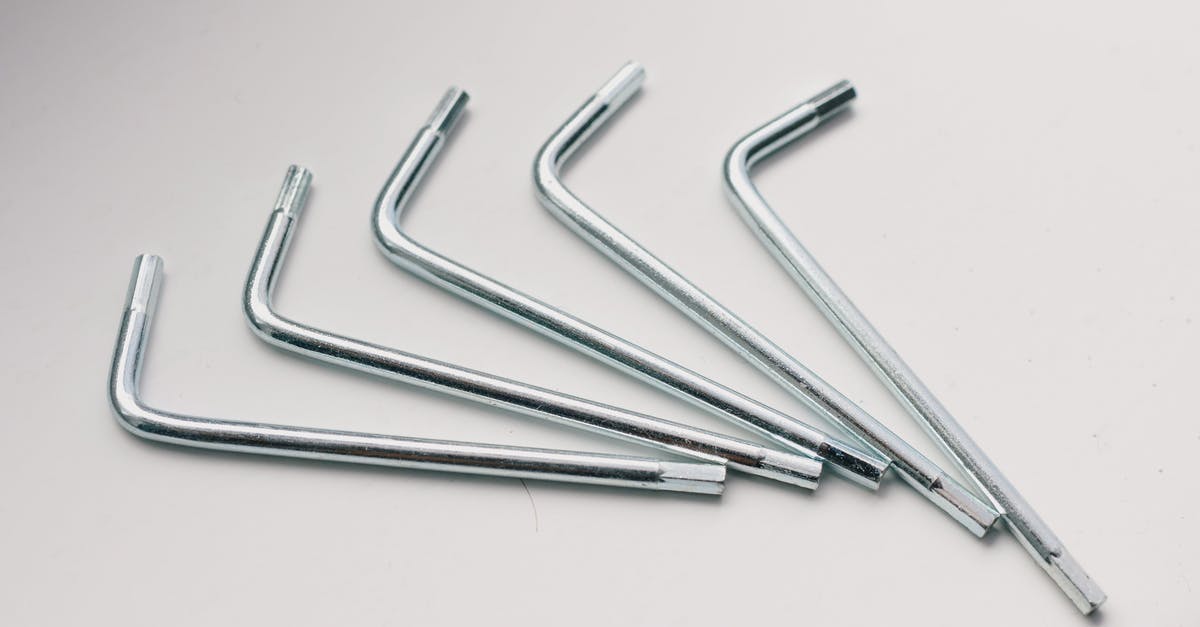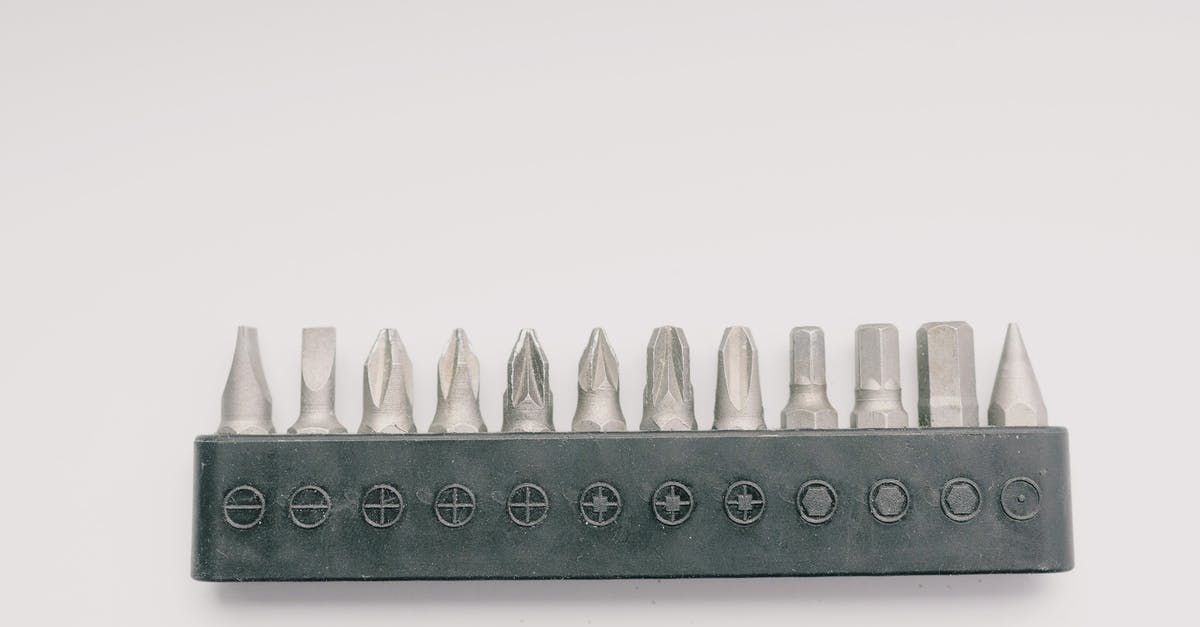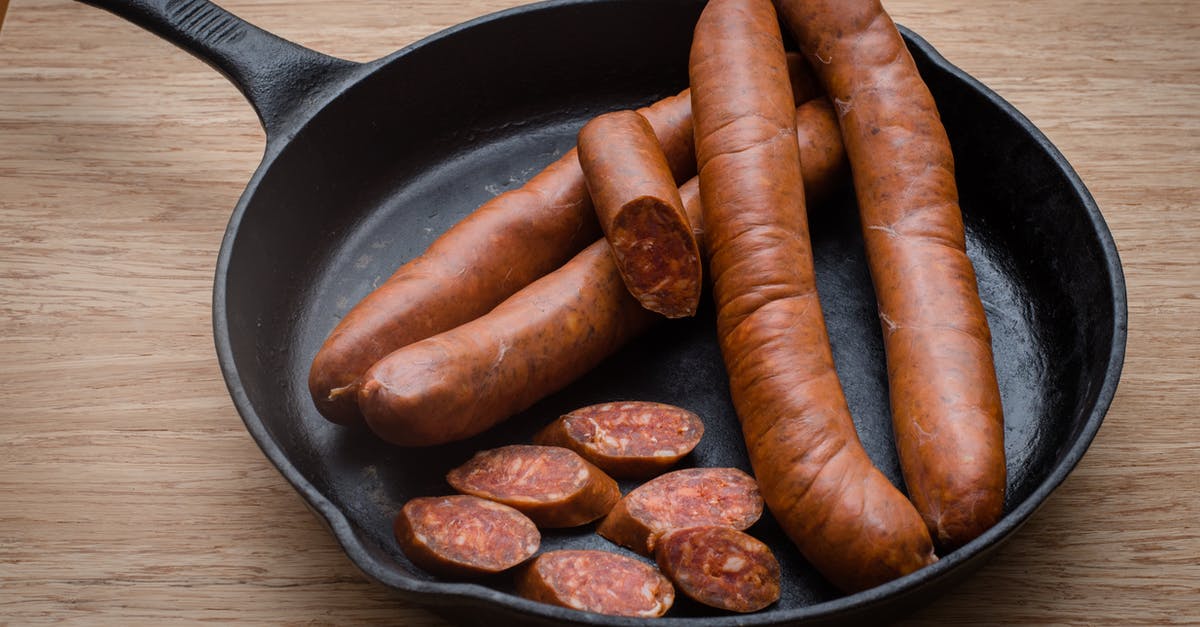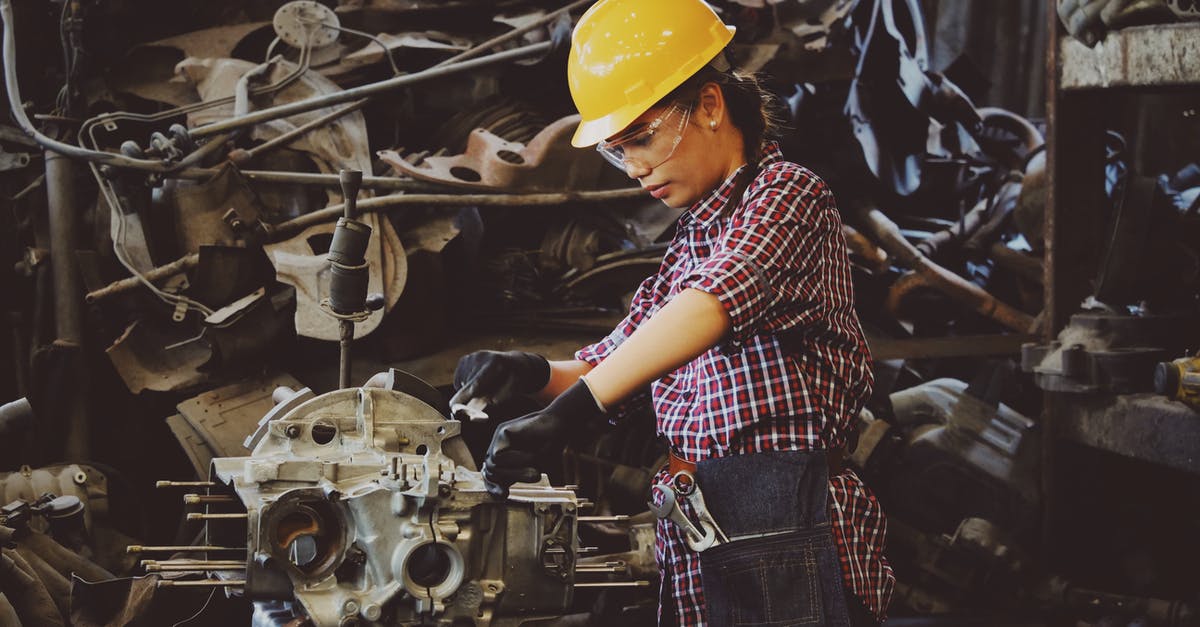How do I fix improperly seasoned cast iron pans?

I'm quite new to cooking as a whole.
A few months back I bought a set of VonShef cast iron pans. When seasoning them, I unfortunately made two errors. First, in my naïveté, I used vegetable oil as the seasoning; and second, I didn't remove the excess oil, leaving a sticky and uneven finish in the pans. After a couple of failed attempts at cooking with this situation, and some food sticking to the pans, I've been putting off using them to avoid further catastrophes.
So how can I go about rectifying my mistakes? I've watched a few videos on YouTube about the proper way of seasoning, and it seems you can clear seasoning by either sanding it down or burning the pan. But how would you also clear off burnt food stuck to the pan?
I hope you can see what I mean in the below pictures.
Best Answer
Cast iron care need not seem so intimidating or mystical. There are lots of ways to take care of it, and though many will profess their own gospel and taboos associated with cast iron cookware, many different solutions will work. You just need to understand some of the basic principles and the rest is personal preference.
First, in my naivete I used vegatable oil as the seasoning
There is nothing wrong with using vegetable oil as your seasoning. That is often what you will be cooking with anyway, and every time you cook with oil you are contributing to the seasoning on your skillet - so obviously it is a fine type of oil to constitute your seasoning.
second, I also didn't remove the excess oil, leaving a sticky and uneven finish.
This has happened to me a number of times, even after removing excess oil. When you season it in an oven (preferably upside down), the oil heats up which can often cause it to run more easily before it has a chance to bond to the iron. That can cause it to leave spots without seasoning, and the spots that are seasoned will sometimes be sticky. I would just repeat the process again until the surface is completely seasoned. I usually wipe a light layer of vegetable oil on mine, turn it upside down in the oven, and bake it for an hour or two at around 350°F with a cookie sheet under it. It'll probably smoke a little bit, but don't worry about it.
Additionally, when I break in a new cast iron whatever, I like to cook with really greasy and oily foods (like bacon) the first few times I use it. It will help create a better seasoning and get rid of those sticky spots. Really let it pool up and try to cook for a decent amount of time. That can help get a nice, uniform finish on it. Scrape it clean with a lightly abrasive sponge or nylon brush and rinse it in cold water (maybe a tiny amount of dish soap if you really want, but it honestly doesn't need it). Dry off. Cook on it again. The more you cook with it, the better the seasoning will get.
Looking at your pictures, I would not do anything so drastic as use a caustic cleaning chemical to strip the seasoning off and start over. Just scrub it nice and clean with some soap, dry it off, and try seasoning it again. And again if you are still not satisfied. You'll get there.
Pictures about "How do I fix improperly seasoned cast iron pans?"



Quick Answer about "How do I fix improperly seasoned cast iron pans?"
Splotchy, patchy, or uneven cast iron is caused by using too much oil during the seasoning process. To fix it, scour the pan with steel wool to remove old seasoning. Wash and dry the pan. Apply a thin layer of oil, wipe the pan down with a towel, and heat it in the oven at 500 degrees for an hour.What happens if you season cast iron with too much oil?
Using too much oil, anything more than about the size of a quarter will just build up and cause an oil slick on your pan. When it's time to season your cast iron skillet, you simply can't do this with a cold skillet. This will cause build up of that oil residue, and cause stickiness.Can cast iron be over seasoned?
Although it seems odd, it is technically possible to over-season a skillet. Too much oil baked into the cast iron will cause it to polymerize unevenly and eventually will cause the surface of the skillet to flake. Adding too much oil when seasoning will also cause your pan to become sticky, notes Lodge.How do I know if I ruined my cast iron pan?
If a crack appears in your cast iron pan, it's time to ditch it. Even a hairline crack will expand and contract when heated and cooled, and ultimately the pan will split\u2014a potentially dangerous situation if it happens during cooking! Plus, cracks are difficult to clean and may harbor bacteria and rust.What happens if you over season a cast iron pan?
Add too much, and it will pool in the pan and not polymerize evenly, resulting in a flaking seasoning. The best oil for seasoning cast iron is flaxseed oil, as it's capable of forming strong molecular bonds with the iron.Why is My Cast Iron Sticky? And How to Fix It!
More answers regarding how do I fix improperly seasoned cast iron pans?
Answer 2
Cast iron frying pans are the only kind I own, and based on your photos I don't think you need to start over with the seasoning. Cast iron is tough as nails, you can always rescue it so long as you don't drop it and crack the pan, and it's easy to care for and maintain.
In this case you can just clean them well and put down another layer of oil. I would use a scrub bud and warm soapy water, applying only light pressure until the cooked on food is removed.
Then I would re-do your seasoning process but be sure you get it hot enough so that the surface isn't tacky when it's done. If it does come out tacky, you can heat it again until the problem spots go away.
Note that generally you should avoid both the soapy water and scrub bud, since they remove the seasoning somewhat, but in this case that's exactly what you want. I use a steel scrub bud and soapy water on my cast iron a couple times a month when I forget to clean them right after cooking and food dries to them, as long as you only apply light pressure it doesn't hurt much, my well seasoned pans stand up to this just fine.
Finally I would be sure to cook with plenty of oil at least for the first few months. Cast iron is not non stick the way Teflon or other coatings are, even when well seasoned, it needs a nice layer of fresh cooking oil.
Serious Eats has a good guide on cast iron, lots of people over complicate it. Even they recommend repeating the seasoning 3 or 4 times, which I think is overkill. Do it once and cook with lots of oil for a while, they'll season up nicely over time.
Answer 3
Place your cast iron pan upside down in your oven and run the 'Oven Clean Cycle'. Wash with dish detergent and dry with heat. Reinitiate a proper seasoning.
If your oven doesn't have a clean cycle, use the highest heat setting available and bake for a few hours.
Answer 4
If you really want to start all over, I recommend buying a can of Easy Off oven cleaner, which is really just a lye concoction.
Put the pan in a large plastic bag (outside), and spray the pan all over with the oven cleaner.
Close the bag up tightly, and let it sit for 24 hours. You can give it another round of oven cleaner halfway through if you want. This will strip off all the seasoning on your pan.
When the 24 hours are up, put on rubber gloves (oven cleaner is really nasty), take the pan out, rinse it down and immediately dry it off, because it will start to rust right away. You can also rub it down with some vinegar at this point, which will help neutralize the rust.
Once it's all stripped and very dry, you can start the seasoning all over again.
I have stripped pans this way with great success. As for the oil to use, there are all sorts of arguments about it, but I have used flaxseed oil, also with great success. I've seasoned cast iron in a hot (500° F) oven, turned upside down, like some places recommend, and it works well to get a base down.
Good luck! I know this sounds like a pain, but it really lets you salvage your precious cast iron.
Answer 5
Your fry pan isn't that bad, I wouldn't even start over. Here is what I would do, with some tips at the end.
- Go to the store and buy a tub of lard.
- Warm the pan on the stove and rub around the lard, it doesn't need to be very hot, just hot enough to melt the lard.
- Use a paper towel and rubs some excess lard on the handle, the underside, and all the non-cooking areas.
- Place the pan, up-side-down in the oven and "bake" it on 400 for 4 hours.
- Turn off the oven and let it cool. When it comes out it should be a bit sticky and the grease may be a bit uneven, but this is not an issue.
- Using a towel and water (NEVER DISH SOAP), wipe down the surfaces you're going to be touching and the bottom. Leave the insides alone.
- Choose some good greasy foods to cook, bacon, hamburgers, fried chicken, etc. Try to say away from foods that have a sauce or a delicate taste (like veggies)
- Cook at least 3 meals, DO NOT CLEAN IN BETWEEN. just wipe out the extra grease.
- You should be good to go, just remember these tips
- Never use dish soap, use plain salt, or sand
- Let food sit in it till it cools. If you cook bacon, for example, let the extra grease sit in the pan till the pan cools.
- If you need to get out stubborn foods, then just burn them out. Put the pan in the oven on 400 for a while, then wipe away the ash. (works well on the stove top if it's not too bad)
- Never let the pan sit dry. If you washed the pan out (again never use soap) immediately put some kind of oil in it. It helps to put the oil in it that you normally cook with.
- If you see rust spots, brush them off with a stiff brush, and "reseason" You don't have to do the whole pan but it doesn't hurt, and it's really easy to do.
Answer 6
Put it in the self.clean oven cycle. Tske it out when cooled and wash down.
I tried flaxseed oil and wasn't impressed. I mixed crisco, red palm oil, ans grapeseed oil. Put the pan in the oven at 200F for 10 mins. Take out and rub down really well. Now wipe it all off. Think its all.off? Tske a paper towel and wipe it again. Put in oven for 1 hour at 475 and let cool. Repeat.
Im a first time cast iron user and repeated this process 7 times with my 1st 2 new skillets and they csme oit gorgeous and completely non stick. Then i restored 2 old pans and only did this process 3 times and theyre both completely non stick and gorgeous
Oh and DONT USE EASY OFF
If you wouldnt eat it.....dont put it in your POROUS cast iron!!! Self clean oven.....hell charcoal grill or propane grill.......but chemicals? Eww.
Sources: Stack Exchange - This article follows the attribution requirements of Stack Exchange and is licensed under CC BY-SA 3.0.
Images: Ksenia Chernaya, Ksenia Chernaya, Milan, Chevanon Photography


